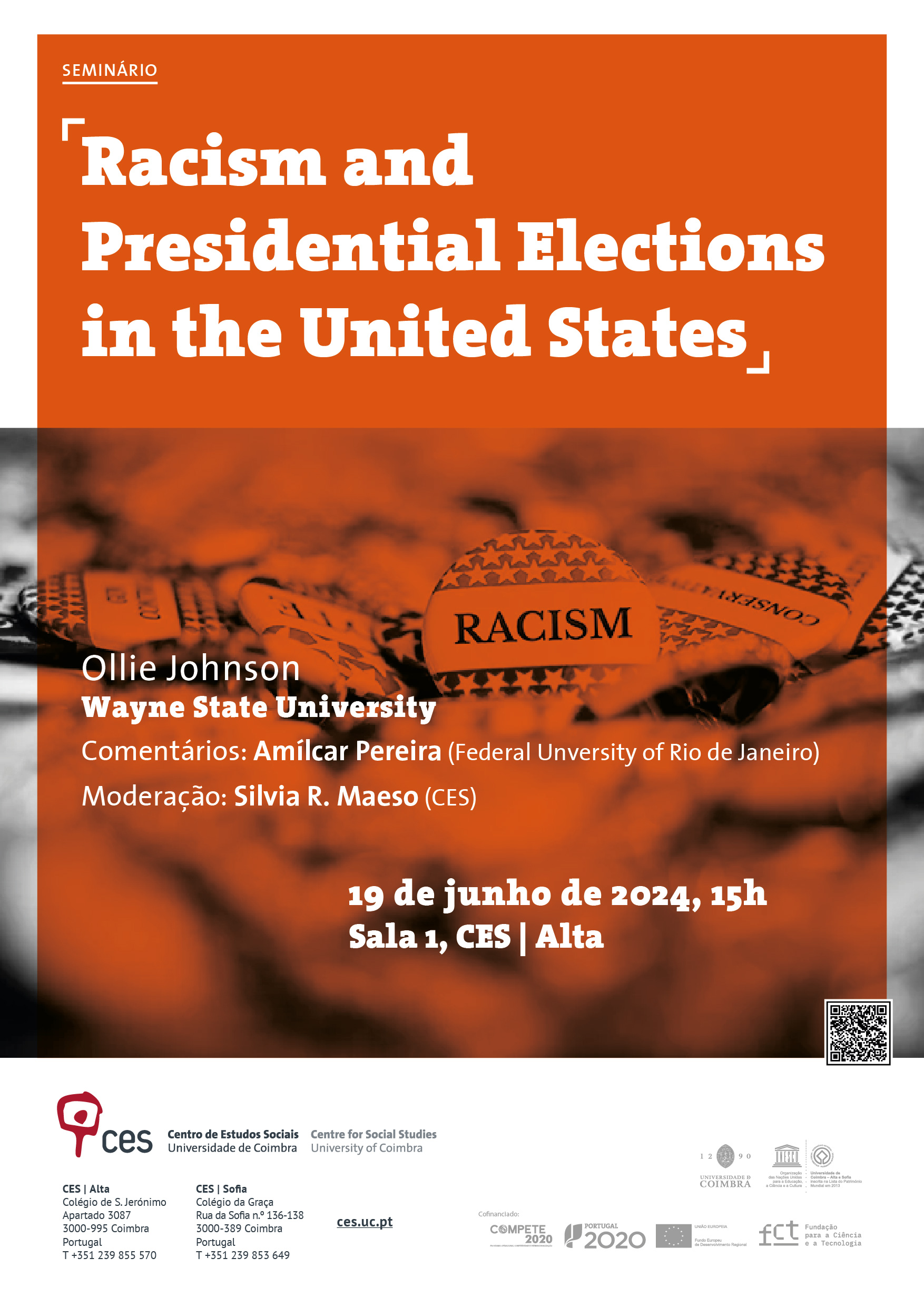Seminar
Racism and Presidential Elections in the United States
Ollie Johnson (Wayne State University)
June 19, 2024, 15h00
Room 1, CES | Alta
The presentation will examine how white supremacy has impacted politics in general and presidential elections in particular in the United States. For most of American history, African Americans were denied the right to vote and run for office. This history of exclusion has created a situation in which the USA has a formal democratic system of presidential elections but the substance and practice have many antidemocratic features. The Black community’s political experience will be highlighted and discussed.
Comments by Amílcar Pereira (Federal Unversity of Rio de Janeiro) | Moderation by Silvia R. Maeso (CES)
Bio notes
Ollie Johnson is Chair and Professor in the Department of African American Studies at Wayne State University. Professor Johnson is co-editor of three books, Comparative Racial Politics in Latin America (2019), Race, Politics, and Education in Brazil: Affirmative Action in Higher Education (2015) and Black Political Organizations in the Post-Civil Rights Era (2002). Author of Brazilian Party Politics and the Coup of 1964 (2001) as well as numerous book chapters and journal articles, Johnson received his Ph.D. in Political Science from the University of California at Berkeley. His current research focuses on African American, Afro-Brazilian, and Afro-Latin American Politics.
Amilcar Pereira is Associate Professor of History Education at the Federal University of Rio de Janeiro (UFRJ), where he teaches in Graduate and undergraduate courses on race relations and Afro-Brazilian histories. PhD in History, he was a British Academy Visiting Professor at the University of Cambridge, UK (Fall, 2023). He is author of the books "O mundo negro": relações raciais e a constituição do movimento negro no Brasil (2013) and Paulo Silva: um contraponto nas relações raciais no Brasil (2021) as well as many journal articles and book chapters.
Seminar within the Doctoral Programme Human Rights in Contemporary Societies


